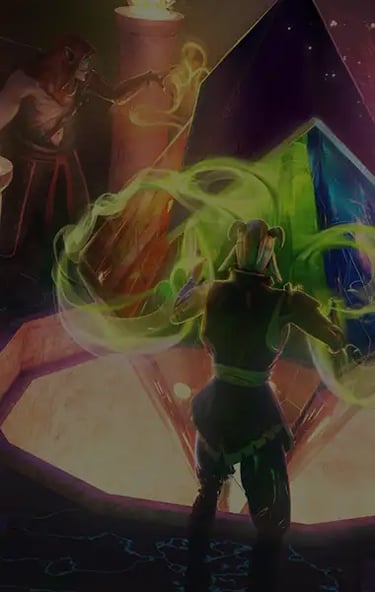
Career Services
Get access to exclusive workshops, recruitment events with major studios & personalized career advice.
Student work by Oliver Harbour
Expert career advice & support
Kick-start your career with a world-class education, industry mentorship, access to a powerful community, and personalized career services.
To assist you in building a competitive edge and meeting your goals, CG Spectrum's in-house career development team offer students career support through:
- Portfolio & demo reel reviews
- Resume/CV assistance & interview preparation
- Internship & job application help
- Career-focused workshops & webinars
- Jobs board & monthly careers newsletter
CG Spectrum provides students with the tools, resources and direct access to world-class mentors, to help them get industry-ready sooner. Through network nurturing and an emphasis on portfolio and demo reel building, we equip students with the job skills and confidence to create high-quality work that speaks for itself.
The other major benefit of being a student is becoming a part of the vibrant and supportive CG Spectrum community. This powerful global network of peers, mentors and alumni working at film and game studios all over the world offers unlimited networking opportunities both during school and well beyond.
That's the CG Spectrum difference!

Studios that have hired our graduates
Through expert career training, mentorship and career guidance, our students have secured employment at film and game studios all over the world.






Why study at CG Spectrum
- Get job-ready in half the time of an average degree program
- Personalized job-focused curriculum and training
- Private 1-on-1 or small group classes (max. 4 students)
- Live call with your mentor each week + recorded video critiques
- Flexible schedules & 100% online, study from anywhere!

My only regret is that I didn't do it sooner!
I found the experience to be very beneficial. My mentor (Gen Camilleri) helped me accelerate my learning with our weekly meetings. Once I completed the course, I was left with great portfolio pieces for my showreel and given free ongoing help from a Career Development Manager, who helped me polish my resume and LinkedIn profile to help kickstart my career.

Nuke Compositing
If you're considering a career change for the CG Industry, try CG Spectrum. You won't regret it!
I wanted to give special thanks to CG Spectrum's career coach for all her time and guidance. She will go out of her way to help guide you! She will take the time to listen to your specific drives, needs and weaknesses, then help you set your goals and craft methodologies to fulfil them. I am really thankful for all her unconditional help!

3D Modeling
I'd like to thank CG Spectrum's career team for how genuinely dedicated they are, and their helpfulness and attentiveness towards students.
Recently, not only did CG Spectrum's career team set up a well-organized career info session for the students, they went above and beyond to take very thorough notes on the entire presentation for students to refer back to. All the staff and students in the CG Spectrum community are super friendly, responsive, and supportive. You can always find the help you need.

3D Modeling
It is a complete package with the goal of helping us to conquer our dream job!
I didn't expect to find a C++ programming course aimed at the gaming industry and of such quality. Since the first contact, the school staff have been very friendly and professional. There is a genuine interest in helping us achieve our goals. The big difference is that we have the guidance of a very high-level professional who works in the industry. In addition, we have access to career development sessions guided by CG Spectrum's career coach. These are classes where we receive guidance and discuss essential career topics. An amazing journey!

Game Programming
The career program was invaluable.
I knew changing careers would have included things such as resumes, applications, networking, etc. But the biggest thing I needed to understand was the nuances of the animation industry, etiquette for approaching recruiters, and what type of roles (fixed-term or permanent) there were. These sessions really helped guide me, and explained how to approach my showreel and the subsequent application processes.

Animation